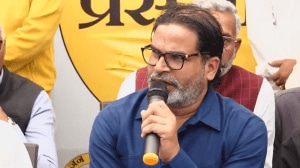Stay updated with the latest - Click here to follow us on Instagram
India,Africa seeks global efforts to combat terrorism,piracy
The two sides also highlighted the need for urgent and comprehensive reform of the UN system.
India and Africa on Wednesday came out strongly against cross-border terrorism asking countries not to allow their territories to be made a base for terrorists and sought intensified international cooperation to snuff out the menace of piracy off the coast of Somalia.
The two sides also highlighted the need for urgent and comprehensive reform of the UN system and backed each other’s aspirations to become permanent members of the UN Security Council with full rights.
The eight-page Addis Ababa Declaration adopted at the end of the two-day Africa-India Forum Summit,co-chaired by Prime Minister Manmohan Singh and Equitorial Guinea President Obiang Nguema Mbasogo,called for immediate cessation of all hostilities in Libya and urged the parties in the conflict to strive towards a political solution through peaceful means and dialogue.
The Summit attended by leaders from 15 African countries unequivocally condemned terrorism in all its forms and manifestations.
“An act of terrorism anywhere is a threat to the entire international community. We recognise the need to further strengthen international cooperation to combat global terrorism,” the Declaration said.
The leaders made a strong pitch for active prosecution of the authors of such crimes and their accomplices and urged that they be brought to justice expeditiously.
“We further call on all countries to ensure that acts of cross-border terrorism do not occur,and that their territories are not made a base for terrorists,” the Declaration said. The problem of piracy plaguing the region also came under focus in the joint Declaration.
“We further stress the importance of addressing the threat posed by piracy off the coast of Somalia and suffering caused by taking hostages,and call on all states to cooperate in combating and eradicating the menace of piracy,” it said.
Addressing a joint press conference with the African Union (AU) chairperson Jean Ping and Mbasogo,the Prime Minister said the Declaration and the Africa-India Framework for Enhanced Cooperation adopted at the Summit envisaged not only economic and political cooperation,but also cooperation in other fields like science and technology,research and development,social development and capacity building,health,culture,infrastructure,energy and environment.
Singh said India’s total commitment over the next three years is expected to be USD 5.7 billion to help Africa achieve its development goals while noting that measures to open the Indian market to African exports,including the Duty-Free Tariff Preference Scheme,are bearing fruit.
Noting that the African continent was on Wednesday on the path of resurgence,he said India deeply valued its friendship with African countries as well as the trust and confidence they have reposed in it.
Asked what gave India confidence to invest in Africa where some of the countries are not stable,Singh said these were “temporary difficulties” which they will overcome.
Ping said the Framework Agreement on Enhanced cooperation would give a new impetus to relations between India and Africa.
Mbasogo said Africa needs a partner like India for its progress and development. On UN reforms,he said India can count on Africa’s support for its permanent membership of the Security Council. The Declaration emphasised that the expansion of the Security Council,in the permanent and non-permanent categories,with increased participation of developing countries in both categories,was central to the process of reform and for enhancing the credibility of the UN.
The two sides agreed to further strengthen cooperation in areas such as sustainable development,poverty alleviation,healthcare,universal education and sharing appropriate technologies.
India and Africa called for negotiating specific steps to reduce and finally eliminate nuclear weapons,leading to a world free from all weapons of mass destruction as envisaged in the Rajiv Gandhi Action Plan of 1988.
The two sides said they looked forward to the commencement of negotiations on the Treaty Banning the Production of Fissile Material for Nuclear Weapons and other Nuclear Explosive devices in the Conference for Disarmament.
On the issue of climate change,India and Africa asked developed countries to take ambitious actions to reduce their greenhouse gas emissions and also provide adequate financing and transfer of technology to support the efforts of developing countries to effectively address the growing concern.
They reaffirmed the importance of reaching an agreement on a second commitment period under the Kyoto Protocol as an indispensable step to preserve the integrity of the international climate change regime.
“We express our firm commitment to a balanced outcome from the climate change negotiations which are commensurate with the principles of equity and common but differentiated responsibilities on the basis of respective capabilities.
The two sides said they remained concerned with the recurrent trend of increasing global food,energy and financial crisis. While recognising the current economic recovery,they were still concerned with its sustainability,the Declaration said.
India and Africa underlined the importance of supporting stable,longterm capital flows to developing countries to stimulate investment,especially in infrastructure.
Highlighting the importance of achieving Millennium Development Goals,the two sides stressed that the aid commitments for the developing countries must be fulfilled by the developed countries which should not slash development assistance.
They also underscored the need for a comprehensive and balanced outcome of the Doha Round in a manner that gives weight to its mandate as a “development round”.
The leaders urged all parties to oppose all forms of protectionism and trade distorting domestic support.
“We remain concerned that no significant progress has been achieved on key issues of interest to developing countries including India and those of Africa,” the document said.







